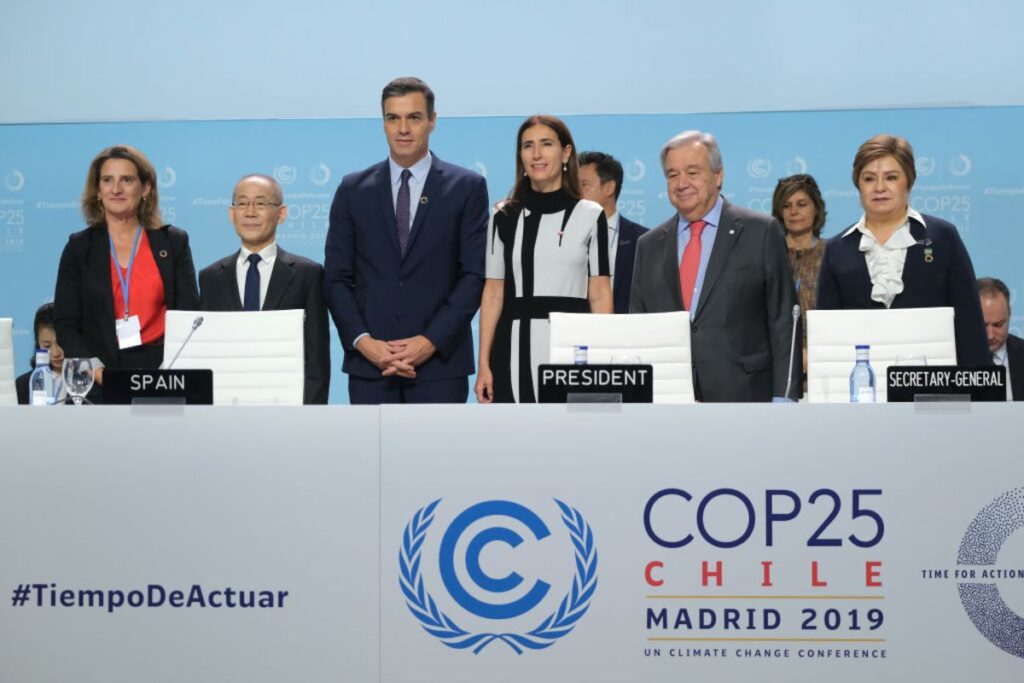Photo Credit: They’re not the ones making it harder to act on climate change. Photographer: Sean Gallup/Getty Images Europe
The real obstacles to addressing greenhouse gas emissions are not the politicians, the billionaires or even the oil companies. The real obstacles are the voters themselves.
Ours is a populist age, dominated not only by the anti-elitist posturing of Donald Trump and the Republican Party but also by a resurgent left that views “billionaire” as a dirty word. Many of our most profound problems, however, originate not in the pathologies of a narrow ruling class but among the broad mass of humanity.
A powerful reminder came in the form of last week’s report from the Intergovernmental Panel on Climate Change. The study contains the now-customary warnings of grievous future harms from climate change, plus a new section detailing the stark reality that it is now too late to avert significant warming.
For decades, pointy-headed elites have called on the nations of the world to address the problem of greenhouse gas emissions by putting a meaningful price on carbon. For the most part, it hasn’t happened — not because of the perfidy of the fossil-fuel industry, but because the idea of a carbon tax is toxically unpopular.
Yes, some polls show public support for a carbon tax. But in the real world, carbon taxation lost badly in two separate ballot initiatives in Washington State in 2016 and 2018. If a carbon tax can’t win in a state President Joe Biden carried by almost 20 points last year, and which has no local fossil-fuel industry, where can it win? And as this study of the Washington experience shows, it was only over the course of the actual campaign that public support for carbon taxation collapsed.
Democrats have looked at rigorous issue polling that presents pro and con arguments on both sides of various topics, I’m told. In that context, emission taxes poll worse than defunding the police. That’s why carbon taxes are nowhere to be found among Biden’s various ambitious proposals. Instead, they try to address climate change through measures that don’t appear to require any direct sacrifices by the broad public.
Taxing carbon dioxide emissions is so unpopular that a recent activist sting revealed that supporting a carbon tax was actually part of ExxonMobil’s plan to prevent serious government action against climate change. “Nobody is going to propose a tax on all Americans,” an oil lobbyist was recorded as saying. So it was safe for ExxonMobil to support it.
That a major fossil-fuel producer could suggest taxing fossil fuels as part of a bank-shot effort to help the fossil-fuel industry is one of the great ironies of our time. But in a narrow sense it’s logical: The hypothetical tax could be wielded as a sword and a shield against other regulatory and subsidy efforts without there ever being a serious risk of it happening.
This, in turn, is why climate activists have basically moved on from pricing. Instead they have put their faith in the kind of subsidy efforts that exist in small ways in the bipartisan infrastructure bill the Senate approved last week and in the larger, more partisan budget proposal Congress will debate this month and next.
That’s sound politics. But public hostility to carbon pricing is a reminder that there will be sharp limits to any kind of real climate action. Concern about climate change, while real and widespread, is also alarmingly shallow. Voters want action on climate, but not action of the sort that would cause anything they buy to become more expensive. Thus the progressive dream of mandating 100% carbon-free electricity in a reconciliation package is inevitably going to run into some of the same problems as a carbon tax.
Thanks to a mix of subsidies, innovations and regulations from ahead-of-the-curve jurisdictions, the cost of new renewable power has plummeted, and solar and wind are already in many cases the cheapest options. But eliminating fossil-fuel power sources that already exist in favor of new cleaner ones is inherently expensive even in a world where renewables are cheap. That’s why progressives are eager for a clean energy standard regulation in the larger budget bill — to hasten the decarbonization of the grid beyond what the economic fundamentals would suggest.
In terms of the legislative process, the proximate obstacles to this will be, as ever, Senators Joe Manchin of West Virginia and Kyrsten Sinema of Arizona, as well as the Senate parliamentarian. But in the real world, the problem is that a clean-power standard that meaningfully accelerates decarbonization will make electricity more expensive.
There’s nothing wrong with the idea of making electricity more expensive in exchange for decarbonization — greenhouse gas emissions are a harmful and unpriced externality that the economy is overproducing. But this proposal simply ends up replicating the toxic politics of the carbon tax. It’s a good bet that this won’t happen, with Manchin and Sinema in effect taking a bullet for Democratic colleagues who don’t want to say no to climate activists but also don’t want to vote for more expensive electricity. (Remember, these are the same politicians who rejected the idea of a higher gasoline tax in the infrastructure bill.)
If you’re a climate hawk, it’s easy to be mad at politicians for their timidity in the face of an urgent crisis. But there’s also genuinely no point in asking ecologically minded elected officials to fall on their swords and lose elections over unpopular ideas, turning over control of the government to people whose ideas are much worse.
All of this leads to a difficult truth: The problem here lies not with the politicians, or even with the billionaires or oil companies. It lies with voters themselves, who recognize that climate change is a real problem but are not necessarily willing to sacrifice much of anything to tackle it.
Article Credit: bloomberg

Pingback: Biden Picks Indian American Frank Islam To Commission on Presidential Scholars - SLSV - A global media & CSR consultancy network